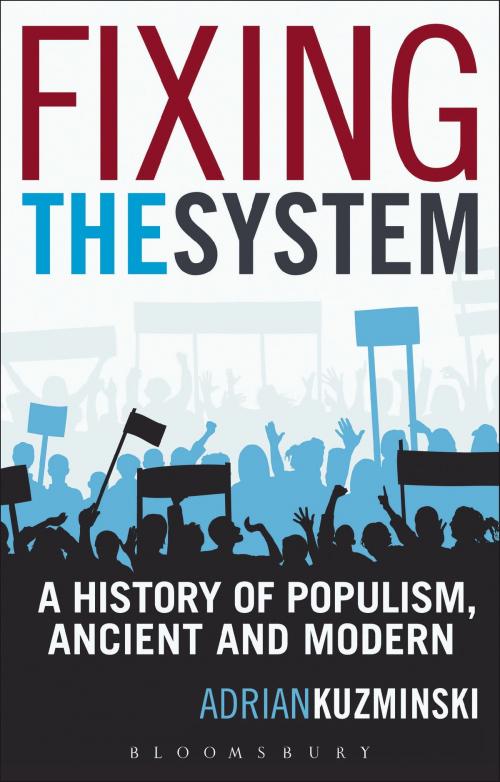Fixing the System
A History of Populism, Ancient and Modern
Nonfiction, Social & Cultural Studies, Political Science, Politics, History & Theory| Author: | Adrian Kuzminski | ISBN: | 9781628924015 |
| Publisher: | Bloomsbury Publishing | Publication: | June 1, 2008 |
| Imprint: | Bloomsbury Academic | Language: | English |
| Author: | Adrian Kuzminski |
| ISBN: | 9781628924015 |
| Publisher: | Bloomsbury Publishing |
| Publication: | June 1, 2008 |
| Imprint: | Bloomsbury Academic |
| Language: | English |
In the current climate of dissatisfaction with "democratic" Western political and economic systems, this is a timely book that demonstrates a true political Third Way.
Populism is distinguished from other political movements by its insistence on two things conspicuously missing from modern systems of political economy: genuine democracy based on local citizen assemblies, and the widespread distribution among the population of privately-owned economic capital. Fixing the System offers a comprehensive historical account of populism, revealing the consistent and distinct history of populism since ancient times. Adrian Kuzminski demonstrates that populism is a tradition of practice as well as thought, ranging from ancient city states to the frontier communities of colonial america-all places where widely distributed private property and democratic decision-making combined to foster material prosperity and cultural innovation.
In calling for a wide distribution of both property and democracy, populism opposes the political and economic system found today in the united states and other Western countries, where property remains highly concentrated in private hands and where representatives chosen in impersonal mass elections frustrate democracy by serving private monied interests rather than the public good. As Kuzminski demonstrates, as one of very few systematic alternatives to today's political and economic system, populism, offers a pragmatic program for fundamental social change that deserves wide and serious consideration. Populism is a genuine "third way" in politics, a middle path between the extremes of corporate anarchy and collective authoritarianism. As America takes stock of her current situation and looks toward the future in the 2008 election year, Fixing the System offers a trenchant and timely study of this deep-rooted movement.
In the current climate of dissatisfaction with "democratic" Western political and economic systems, this is a timely book that demonstrates a true political Third Way.
Populism is distinguished from other political movements by its insistence on two things conspicuously missing from modern systems of political economy: genuine democracy based on local citizen assemblies, and the widespread distribution among the population of privately-owned economic capital. Fixing the System offers a comprehensive historical account of populism, revealing the consistent and distinct history of populism since ancient times. Adrian Kuzminski demonstrates that populism is a tradition of practice as well as thought, ranging from ancient city states to the frontier communities of colonial america-all places where widely distributed private property and democratic decision-making combined to foster material prosperity and cultural innovation.
In calling for a wide distribution of both property and democracy, populism opposes the political and economic system found today in the united states and other Western countries, where property remains highly concentrated in private hands and where representatives chosen in impersonal mass elections frustrate democracy by serving private monied interests rather than the public good. As Kuzminski demonstrates, as one of very few systematic alternatives to today's political and economic system, populism, offers a pragmatic program for fundamental social change that deserves wide and serious consideration. Populism is a genuine "third way" in politics, a middle path between the extremes of corporate anarchy and collective authoritarianism. As America takes stock of her current situation and looks toward the future in the 2008 election year, Fixing the System offers a trenchant and timely study of this deep-rooted movement.















